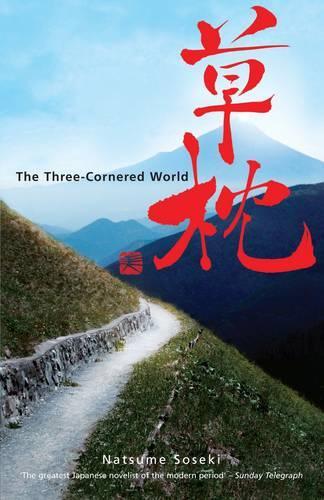
The Three-Cornered World
(, 3rd)
Publishing Details
The Three-Cornered World
By (Author) Alan Turney
By (author) Natsume Soseki
Introduction by Damian Flanagan
Peter Owen Publishers
Peter Owen Publishers
28th February 2011
3rd
United Kingdom
Classifications
General
Fiction
Fiction in translation
895.6344
Physical Properties
256
Description
"Walking up a mountain track, I fell to thinking. Approach everything rationally, and you become harsh. Pole along in the stream of emotions, and you will be swept away by the current. Give free rein to your desires, and you become uncomfortably confined. It is not a very agreeable place to live, this world of ours." Opening with the most famous introductory lines in Japanese literature, "The Three-Cornered World" has been cherished by generations of readers as a glittering jewel in the crown of Natsume Soseki's literary achievement. A painter escapes to a mountain spa to work in a world free of emotional entanglement, but finds himself fascinated by the alluring mistress at his inn, and inspired by thoughts of Ophelia by Millais, he imagines painting her. The woman is rumoured to have abandoned her husband and fallen in love with a priest at a nearby temple, but somehow the right expression for the face on the painting eludes the artist. Beautifully written, humorous, and filled with bittersweet reflections on the human condition, this work was intended as a unique haiku-novel with a mood utterly different to anything ever produced in the West. Demonstrating along the way a mastery of everything from Western painting to Chinese literature, Soseki succeeded in creating an artistic tour-de-force.
Reviews
"Vastly refreshing . . . Soseki doesn't shrink from seeking and finding exquisite pearls of beauty." --Guardian; "A writer to be judged by the highest standards. His works create, after the fashion of all great writers, a new and completely individual reality." --The Spectator; "The greatest Japanese novelist of the modern period." --Sunday Telegraph
Author Bio
Natsume Soseki (1867-1916) is one of the great writers of the modern world. Educated at Tokyo Imperial University, he was sent to England in 1900 as a government scholar. As one of the first Japanese writers to be influenced by Western culture, his various works are widely read in Japan, and contemporary authors in Japan continue to be influenced by his "oeuvre," which also includes "The Gate", "I Am a Cat", "Kokoro" and "The Three-Cornered World".
